Cinema is an illusion—twenty-four frames per second creating the appearance of motion. The characters are portrayed by actors, the settings are often staged, and the narratives are carefully constructed. Yet, paradoxically, films can reveal deeper truths than one constructed reality.
Beneath the surface of fiction lies a subtext that distills the complexity of human existence into something clearer, more focused, and ultimately more real than the chaotic and fragmented nature of everyday life.
The Power of Condensed Truth
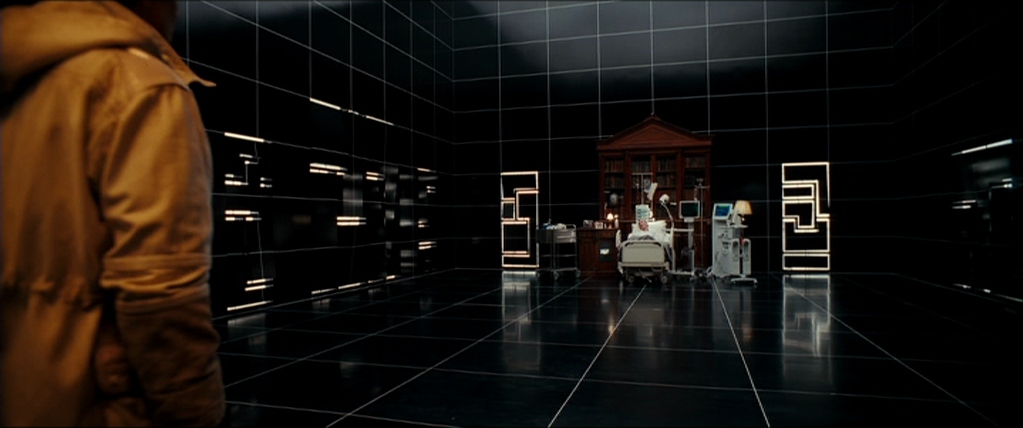
In reality, truth is messy. Our lives are filled with contradictions, distractions, and unresolved emotions that rarely align into a clear narrative. Movies, however, strip away the noise, leaving only the essential. A well-crafted film compresses years of experiences, moral dilemmas, and personal transformation into a two-hour journey, allowing audiences to grasp profound truths about themselves and the world.
Christopher Nolan’s Inception explores the nature of perception, control, and reality within a world of dreams and illusions where time is also dilated. Dom Cobb’s struggle to distinguish dreams from reality mirrors our tendency to create comforting narratives, even at the cost of self-deception. The film’s central theme—that planted ideas shape our perception—reflects how belief systems, propaganda, and personal illusions manipulate our sense of truth. Though abstract, Inception challenges the foundations of our reality, making it feel more real than reality itself.
A Mirror to Human Nature
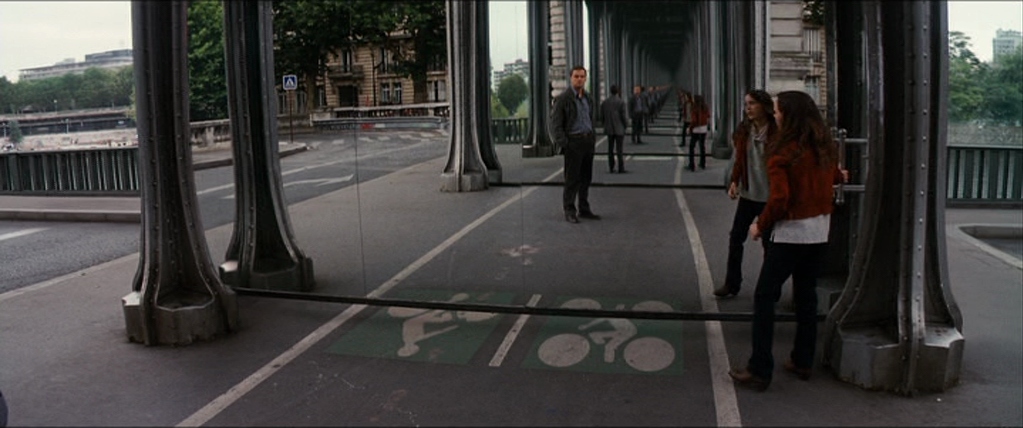
Movies amplify emotions and conflicts, exposing them in their rawest form. Unlike everyday life, where we often suppress our feelings, films reveal them without filters. This is why a great movie can resonate more deeply than real-life events—it captures emotions in their purest state, allowing us to connect with the characters and their experiences on a profound level through our ability to empathize and put ourselves in the shoes of a fictional character.
Inception mirrors human nature by exploring the tension between reality and perception. The film delves into how our subconscious shapes our understanding of the world, similar to how our memories, experiences, and desires influence how we perceive ourselves and others. Cobb’s internal conflict, rooted in his guilt over his wife’s death, reflects how many individuals are trapped by unresolved emotions. Inception highlights how we construct our own realities, distort the truth, and struggle to break free from the past in pursuit of personal growth and redemption.
The Fiction That Exposes Truths
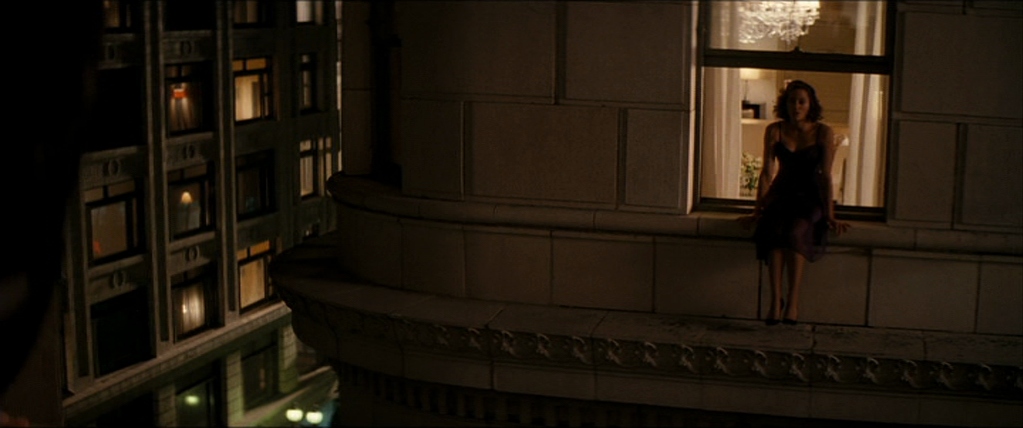
Movies have the unique ability to reveal truths that real life often obscures. While everyday experiences are filled with ambiguity, films offer a controlled space to explore themes like societal issues, personal dilemmas, and philosophical questions with clarity. Directors and screenwriters can create narratives that expose what is often overlooked in our daily lives through direct or dual-narrative storytelling.
Inception exposes the manipulation of perception and control, both within dreams and in the real world. It explores how reality is shaped by external forces like memories, desires, and societal expectations. The concept of “inception” mirrors how systems of power, culture, and social norms subtly shape our beliefs and actions without us realizing it.
The film also critiques societal structures that offer the illusion of freedom while maintaining control, much like the systems that govern our lives. In Inception, societal structures and control are critiqued through the concept of dreams within dreams, where characters experience layers of reality that are manipulated by others for financial gains or exploitation.
Cobb confronts his guilt and desires, mirroring the struggle between personal authenticity and societal expectations. Ultimately, he chooses emotional healing over societal norms, embracing a subjective reality with his children instead of the objective truth, highlighting the tension between personal desires and external pressures.
Why the Illusion Feels More Real Than Reality
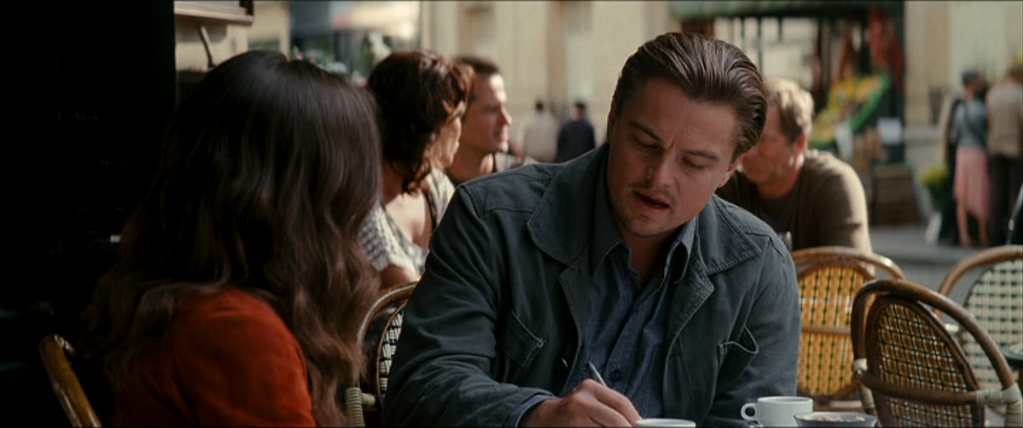
The irony of Inception lies in its construction—yet its exploration of perception, reality, and the subconscious profoundly impacts our emotions and thoughts. The film operates on a deeper psychological level, using symbols, metaphors, and archetypes to explore ideas that go beyond the surface of daily life, forcing us to question the nature of our reality.
Christopher Nolan, at his core, is a philosopher who embeds his vision and truths within the layers of Inception’s narrative. Like many great filmmakers, he navigates the boundary between the known and the unknown, prompting us to engage with deeper questions of human existence.
Drawing from Carl Jung’s concept of the collective unconscious, Inception taps into universal symbols and themes that resonate across cultures. The film doesn’t just tell a story about dreams—it reveals fundamental truths about the human experience, making us confront the layers of our own consciousness and the ways in which we shape our perceptions of reality.
Power of Subconscious Storytelling
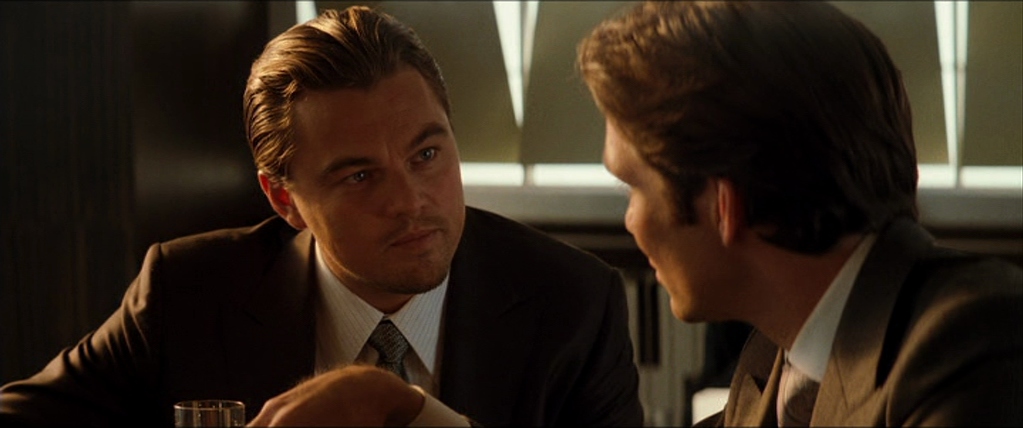
Direct messaging often lacks lasting impact because it’s too overt. True resonance comes when ideas are subtly woven into art, allowing them to seep into the subconscious. Art communicates on a deeper level through subtext and symbolism, sparking personal reflection rather than imposing meaning. This indirect approach bypasses resistance, making the message more universal and emotionally powerful.
Inception showcases the power of subconscious storytelling, using its layered structure to subtly plant ideas profoundly enough so that they will unfold naturally over time. The film immerses us in its world, challenging our perceptions of reality. Like the process of inception, the most powerful art shapes our thoughts without us realizing it, deeply influencing us.
Cobb’s journey through multiple dream layers illustrates how true transformation demands accessing the core of the subconscious, with repetition in each layer reinforcing the change.
Why people prefer the Illusion

People resist uncomfortable truths because self-denial offers comfort, and facing reality requires confronting painful contradictions. Cognitive dissonance keeps people clinging to familiar illusions, reinforced by societal distractions. Accepting reality demands self-reflection and transformation, which many avoid.
Illusions also maintain social cohesion, as systems rely on collective belief. Films like Inception subtly challenge audiences, planting ideas that grow over time, while true awakening requires the courage to see and act—something not everyone is ready to embrace.
In Inception, individuals use defense mechanisms and projections that direct their focus toward the architect whenever they sense a threat. At the end, Cobb chooses a dream where he can be with his children, abandoning the reality he once pursued. His struggle with guilt and the need for closure leads him to prioritize emotional healing over objective truth.
By embracing this subjective reality, Cobb chooses the illusion of closure and peace, opting for a world shaped by his own illusions rather than confronting the painful truths of the real world.
Ultimately, the film’s ending suggests that the answer is less important than the emotional resolution (catharsis) Cobb experiences. Whether he’s in the real world or not, the film focuses on his personal journey of self-forgiveness and the acceptance of his own choices, which gives him the emotional peace he seeks.
The theories of the ending
In real life, Cobb’s actual children remain a mystery. If he is trapped in a dream, it means they are growing up without him, deprived of their father, while he lives in an illusion of reunion. On the other hand, if he has truly returned, then he is finally reunited with his children after years of separation. The film leaves this question open, highlighting the tension between Cobb’s emotional need for catharsis and the objective reality that may differ from his subjective experience.
One of the strongest clues suggesting Cobb is still in the dream. His children appear exactly as he always remembered them—similar clothes, same posture, same lighting—almost like a perfect replication of his subconscious projection. If he were truly back in reality, we would expect at least some changes, especially since time has passed.
The elements suggesting that Cobb is indeed in reality include his wedding ring, he knows where he comes from, subtle variations in clothing, the change of actors playing his children two years older and looking at him, and the spinning top wobbling.
Another interesting detail is how the film subtly conditions the audience to care less about the totem spinning and more about Cobb’s emotional resolution. By the time the screen cuts to black, many viewers, like Cobb himself, stop questioning reality—falling into the very illusion the film critiques.
The real theme behind Inception
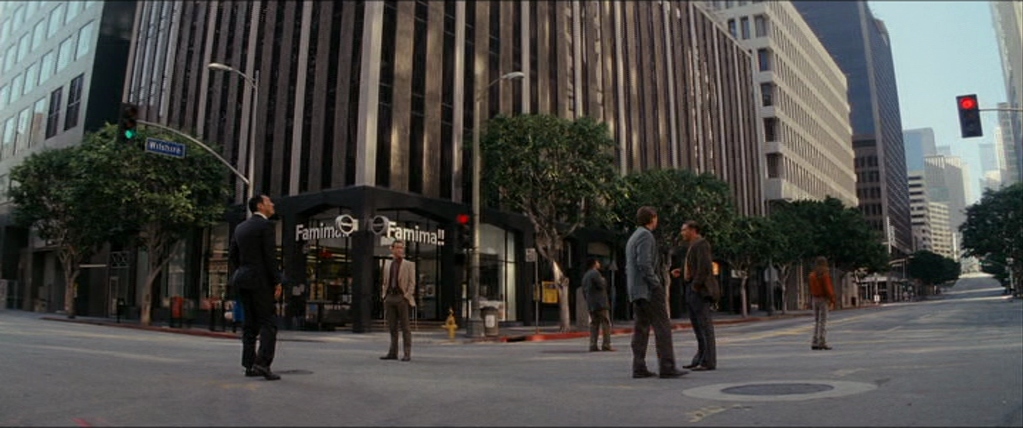
Christopher Nolan’s Inception is often analyzed as a story about dreams, reality, and the subconscious, but beneath that, it functions as a metaphor for filmmaking itself. Each main character in Inception represents a role in a film production, and the process of dream infiltration mirrors the process of crafting and immersing an audience in a cinematic experience.
The Inception Crew as a Film Crew
1. Cobb (Leonardo DiCaprio) – The Director / The Screenwriter
Cobb, quant à lui, est le maître d’œuvre de l’opération, tout comme un réalisateur et un scénariste qui supervisent chaque aspect de la production. Il a une vision, orchestre le plan et veille à ce que chaque élément s’imbrique parfaitement. En tant que scénariste, il établit les règles du rêve, définit les enjeux et guide l’évolution de l’histoire. Son rôle est de rendre le rêve (ou le film) réaliste et captivant, en créant une narration cohérente qui maintient l’illusion jusqu’au bout.
2. Arthur (Joseph Gordon-Levitt) – The Producer
Arthur is responsible for the logistics, much like a producer in filmmaking. He makes sure everything runs smoothly, from planning the dream levels to keeping the team organized.
3. Ariadne (Elliot Page) – Production Designer / Cinematographer
Ariadne is responsible for constructing the dream world, much like how a director of photography and a production designer shape the visual and structural aspects of a film’s narrative. She creates the environment that the characters—and, by extension, the audience—will explore and perceive as real.
4. Eames (Tom Hardy) – The Actor
Eames is a master of deception and disguise, embodying different roles within the dream to manipulate the target’s perception. This is akin to an actor’s job of bringing different personas to life on screen.
5. Yusuf (Dileep Rao) – The Special Effects Technician
Yusuf is in charge of the sedation and dream stability, which can be likened to the special effects team ensuring that the illusion holds up and doesn’t break immersion.
6. Saito (Ken Watanabe) – The Studio Executive
Saito funds the mission and has a vested interest in its success, much like a movie studio backing a film financially and expecting a profitable outcome.
7. Robert Fischer (Cillian Murphy) – The Audience
Fischer, the one being implanted with an idea, represents the audience. The entire operation revolves around making him believe something—just as a filmmaker crafts a narrative designed to make the audience emotionally invest in the story.
Dreams as Films
- The way characters enter different dream levels mirrors how a film immerses its audience.
- The concept of “the deeper you go, the more time slows down” reflects how movies alter our perception of time.
- The idea of “planting an idea in someone’s mind” is the essence of storytelling—filmmakers guide emotions, thoughts, and ideas into an audience’s subconscious.
The Ending: A Filmmaker’s Dilemma
Cobb’s final moment—whether the top falls or not—reflects the filmmaker’s greatest challenge: Does the audience believe in the illusion? Just as a great film stays with viewers after the credits roll, Cobb’s dream world lingers in ambiguity, making the audience question reality.
In essence, Inception is not just about dreams—it’s about the power of cinema itself.
Conclusion: The Truth Hidden inside Fiction
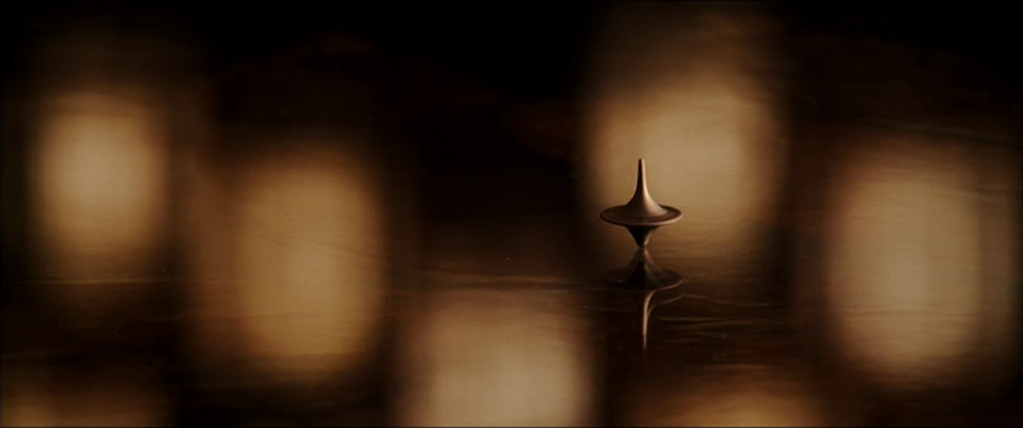
Movies, while fictional, often reveal deeper truths through their subtext, offering a concentrated version of life’s biggest questions. By stripping away daily distractions, films force us to confront the raw essence of humanity. At their most powerful, they awaken us from self-denial, confronting uncomfortable truths that might otherwise be ignored.
Through compelling narratives, films act as mirrors, reflecting the illusions we cling to, whether about society, identity, or personal fulfillment. This awakening is crucial, as it helps protect us from manipulation by consumer culture, political ideologies, and other external forces, much like Inception reveals how deeply rooted ideas shape our perception of reality.
The more cryptic a movie is, the more likely you are to think you’ve reached the conclusion on your own.


GIPHY App Key not set. Please check settings